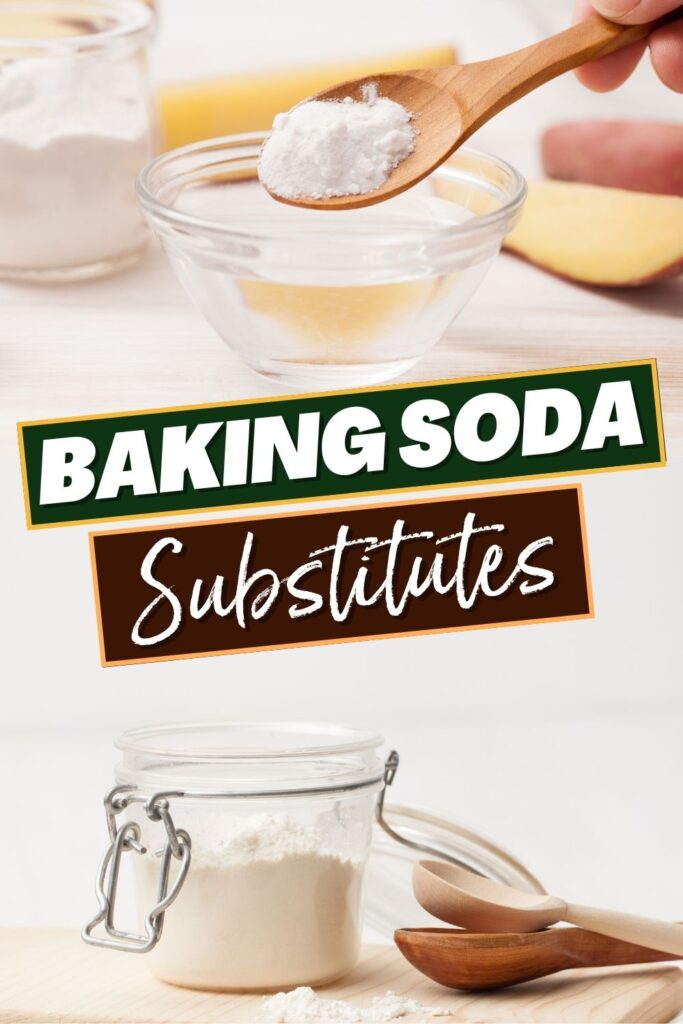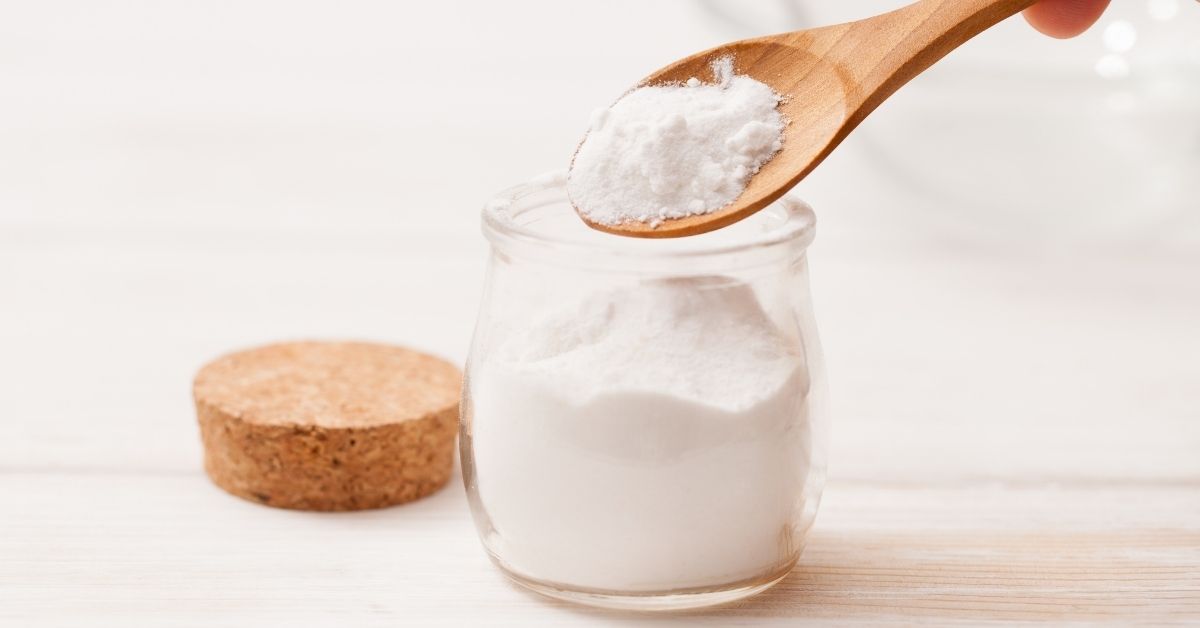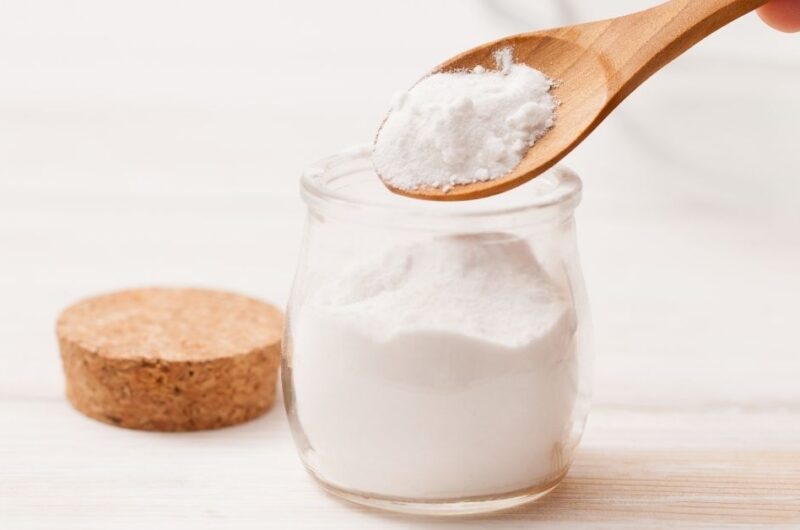Are you mid-baking, frantically searching for a list of baking soda substitutes?
Well, fret no longer, because I’m here to save the day!
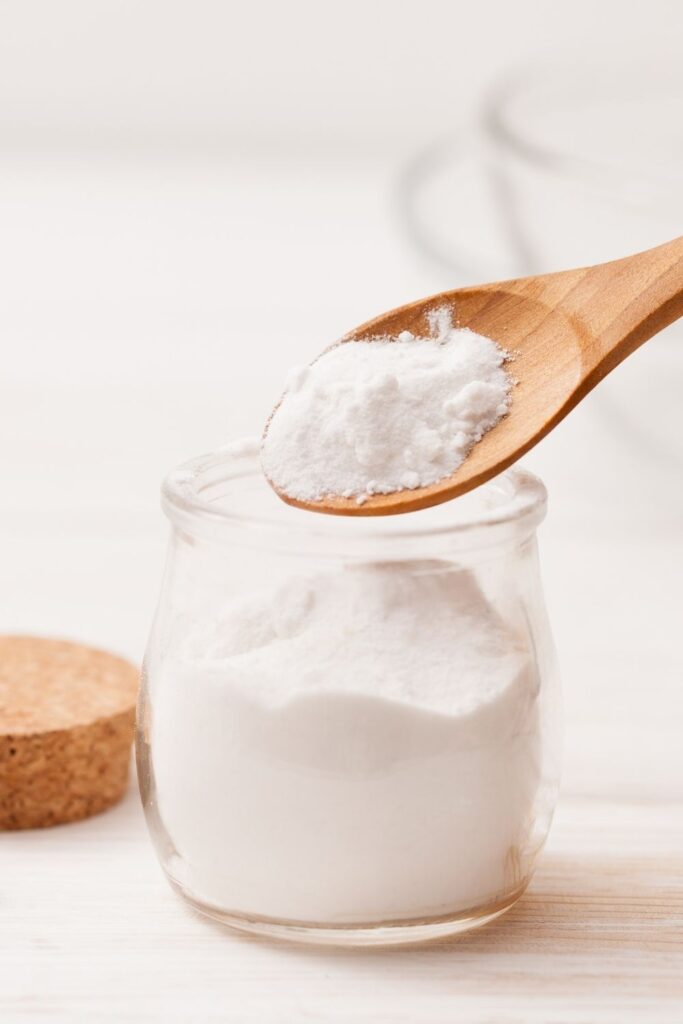
We’ve all been there. You’re combining your dry mixture and realize, “Oh, no! I don’t have any baking soda!”
It’s a tale as old as time, but the good news is, there are a few great options!
There are a number of easy swaps that will save that batch of cookies from going to waste.
Not sure where to begin? I’ve included a list of baking soda alternatives that will turn your baking nightmare into salvation!
What is Baking Soda?
In short, baking soda is a natural chemical leavening agent that allows pastries to become nice and fluffy.
Scientifically known as sodium bicarbonate (NaHCO3), it’s basically a type of salt.
It shouldn’t surprise you to hear that it contains a sodium ion and a bicarbonate ion.
As well as baking, baking soda is often used as a cleaner, deodorizer, and antacid.
Without baking soda, though, your cakes will never rise, and baked goods won’t be as wonderful as they are.
In short, it would be a sad, sad world without the miracle of baking soda.
How Does Baking Soda Work?
Remember those experiments you did in third-grade science class where you mix baking soda and vinegar? Think that but on a smaller scale.
When you combine baking soda with an acid, it produces small carbon dioxide bubbles.
These bubbles become trapped in batter, making it inflate and rise.
Baking soda is only activated once it’s combined with an acidic ingredient and a liquid.
This is why you never see it being used outside of a recipe.
Baking Soda Substitutes
It’s the worst feeling in the world when you get started on a recipe and realize you’re out of one key ingredient.
Luckily, there are a lot of easy swaps you can make if you don’t have time to run to the grocery store.
Below I’ve compiled a list of baking soda substitutes that will take that batch of cookie ingredients from zero to hero.
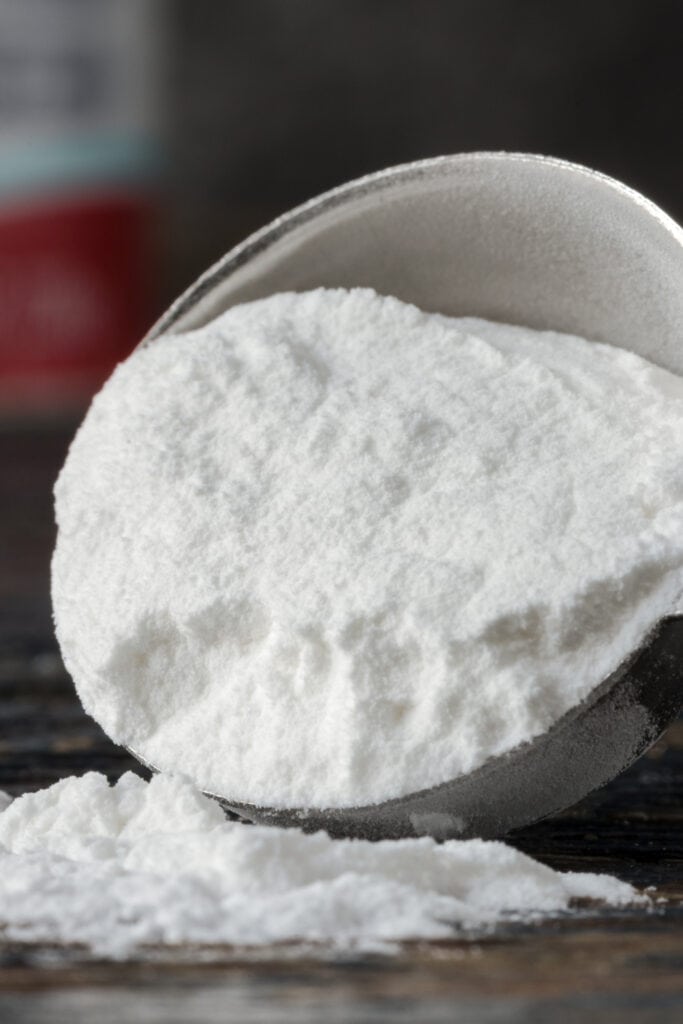
1. Baking Powder
It’s easy to confuse this ingredient with its sister, baking soda, (trust me, I’ve done it dozens of times).
But the two ingredients aren’t too far off from each other.
Baking powder is actually a blend of baking soda, acid, and a stabilizer (cream of tartar and cornstarch, respectively).
As mentioned, baking soda needs acid to work. And in baking powder, you get the acid right in the mix. So all that’s left is to add liquid to start the reaction.
Baking powder helps lighten the texture of baked goods. That’s why it’s often used in cornbread, biscuits, and pancakes.
However, if you use it in cookies or brownies, you’ll see they come out more cake-like than chewy.
How to Substitute: Swap 1 teaspoon of baking soda with 3 teaspoons of baking powder, then reduce the salt in the recipe by half.
Note: since you’ll need three times as much baking powder, it’s best for recipes that only need a small amount of baking soda.
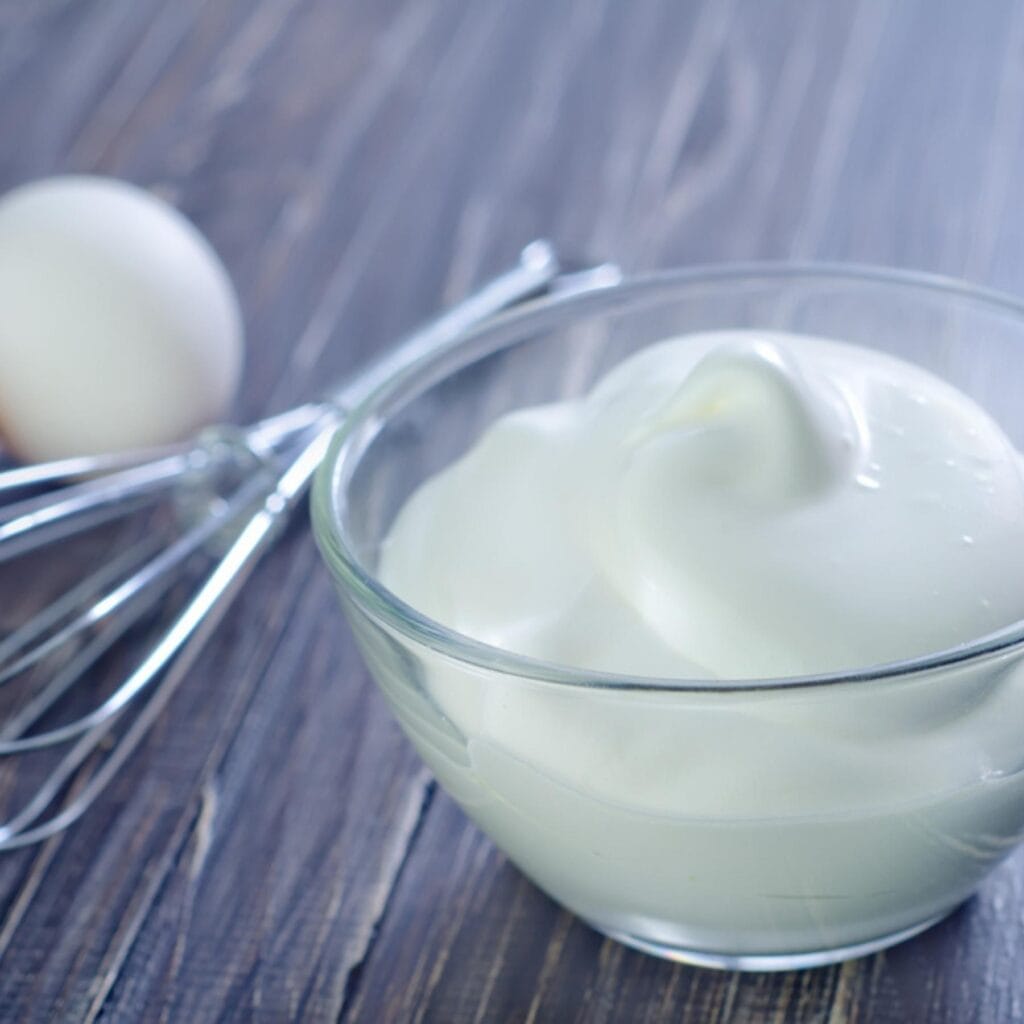
2. Whipped Egg Whites
When whipped, egg whites double (if not triple) in size. And all that added air makes cakes and bakes super light and fluffy.
This option works best for recipes that call for baking soda and baking powder. That way, you don’t have to add more baking powder.
Similarly, it’s best in recipes that already call for eggs, like cakes or quick bread recipes.
Just divide the eggs listed and whip the whites in a separate bowl. Add the yolks as normal, then gently fold the whites into the mix at the end.
If the recipe doesn’t need eggs, I suggest adding 1-2 whipped egg whites. Then, cut the liquid down to account for this added moisture.
Here’s how:
- Measure the whites in a liquid measuring cup.
- Replace an equal amount of liquid in the recipe.
For example, if you have two tablespoons of egg whites, take out two tablespoons of liquid so you’re not left with a bowl of watery batter.
How to Substitute: Swap 1 teaspoon of baking soda with 2 whipped egg whites.
Note: this option won’t work for firm doughs, like cookie dough.
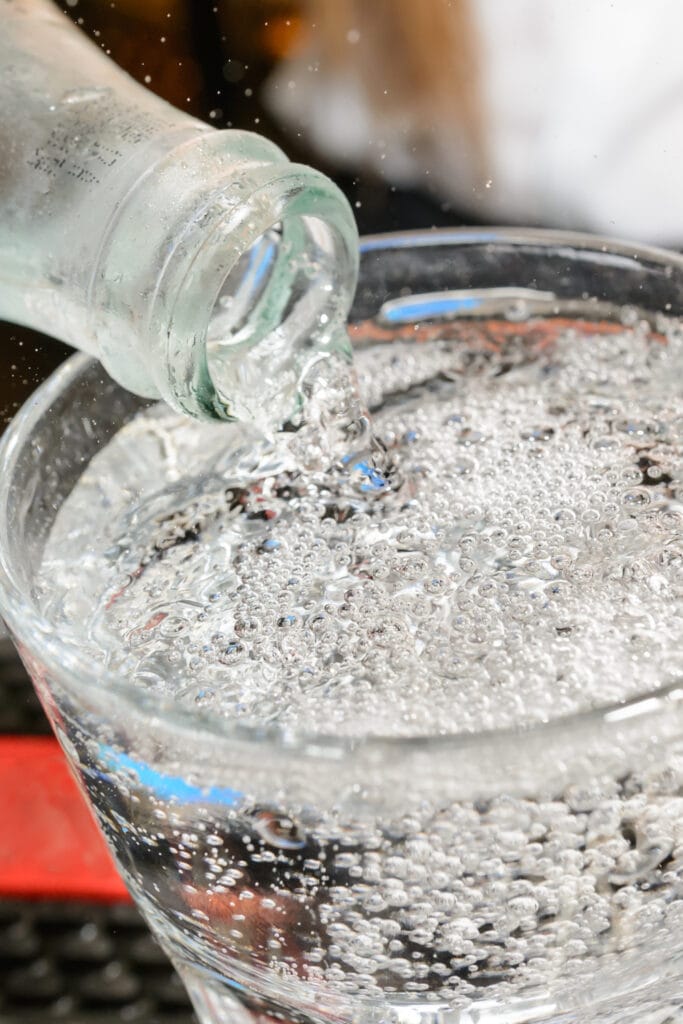
3. Club Soda
Club soda and baking soda share the same word, but can they achieve similar results?
It might not provide the same amount of fluffiness as baking soda, but club soda can still hold its own!
Club soda’s main ingredient is sodium bicarbonate, which essentially makes baking soda in liquid form.
Of course, with this option, you’ll be adding liquid to the recipe. So it will only work in recipes that have at least 1/2 cup of milk or water in the mix already.
Like the egg whites, it won’t work for anything firm, like cookie dough.
How to Substitute: Swap 1/4 cup of milk or water for 1/4 cup of club soda.
Note: club soda will lose its bubbles fast. So be sure to get the bake in the oven asap!
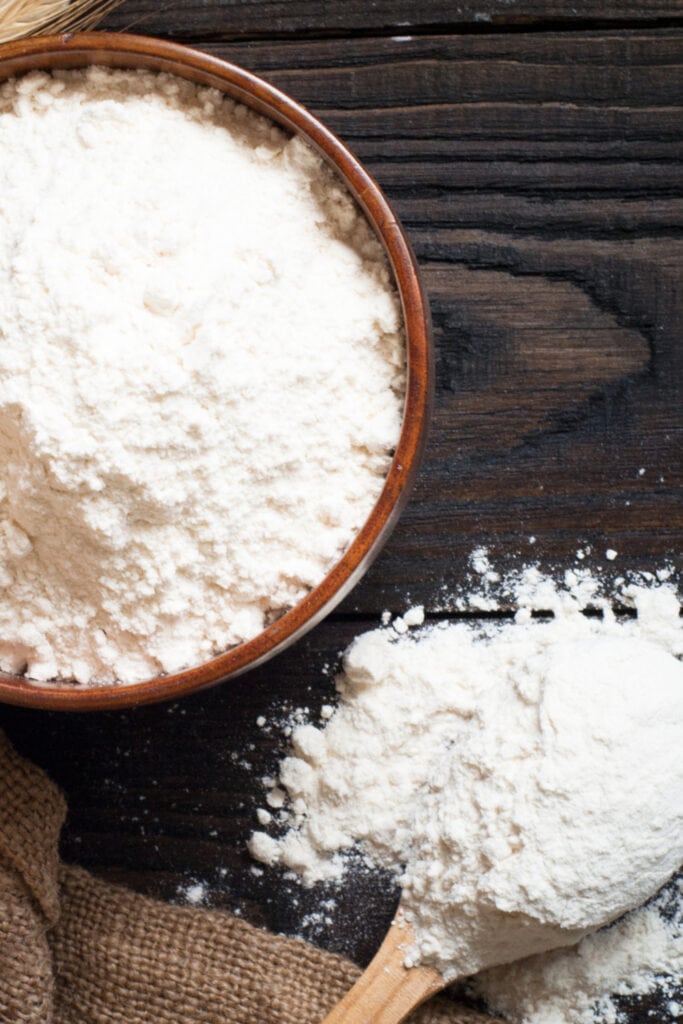
4. Self-Rising Flour
If you’ve never used self-rising flour before, it’s basically a miracle in powder form.
But really, it’s nothing special – just plain flour with baking powder and salt mixed in.
Of course, that’s baking powder, not baking soda. So there is already some acid in the mix.
In practically every case, recipes with baking soda also call for something acidic, like buttermilk.
So, you’ll need to replace it with something less acidic to help neutralize the recipe.
For example:
- If the recipe has 2 cups of flour, 1 teaspoon of baking soda, and 1/2 cup of buttermilk, then-
- Use 2 cups of self-rising flour and 1/2 cup of plain milk.
You see, for this substitute, you’ll simply replace the all-purpose flour with self-rising and then omit the salt.
How to Substitute: Replace the all-purpose flour in the recipe with self-rising flour, then omit the salt.
Note: 1 cup of self-rising flour has about 1 1/2 teaspoons of baking soda. So this may not yield perfect results.
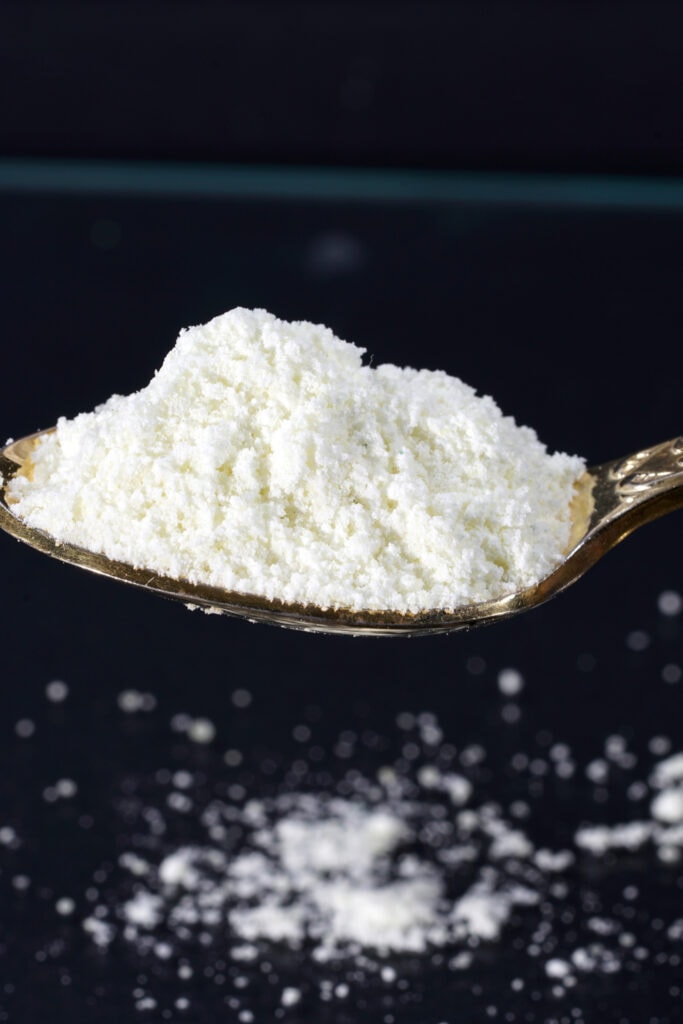
5. Baker’s Ammonia
Let’s turn the clock back a hundred years when baker’s ammonia was the most popular leavening agent used in baking.
(Before the advent of baking soda, of course!)
Baker’s ammonia accomplishes the same purpose as baking soda, adding a light, crisp texture to cookies and baked goods.
So what’s the drawback? The potent smell.
You’ll understand why we’ve moved past it after taking a crack at baking with baker’s ammonia.
Let me assure you, though, that the smell will dissipate and will not affect the end result.
How to Substitute: Swap 1 teaspoon of baking soda with 1 teaspoon of baker’s ammonia.
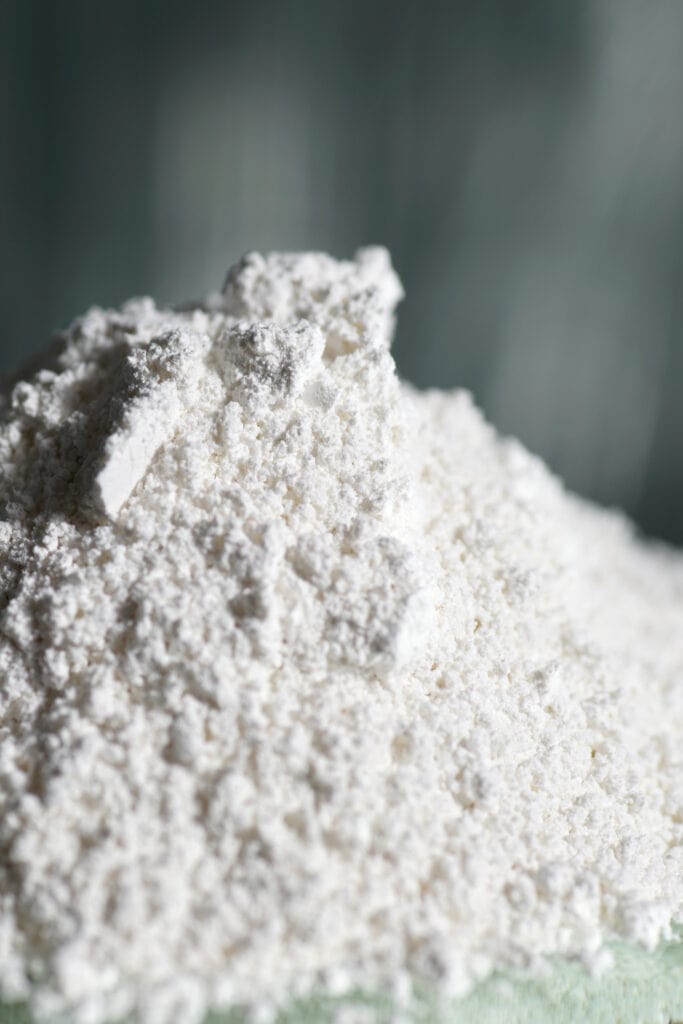
6. Potassium Bicarbonate and Salt
Potassium bicarbonate is most often seen in antacids and heartburn remedies. But did you know you can use it in place of baking soda?
Your best bet is to find it online. The only caveat, though, is that it doesn’t include salt.
This can be great if you’re trying to watch your salt intake. But it’s bad if you want to use it as a baking soda swap.
On its own, potassium bicarbonate will still provide the same leavening function as baking soda.
But you may need to add some salt to account for any flavor differences in your recipe.
I suggest starting with an additional 1/4 teaspoon of salt and tasting the batter dough. Add another 1/4 teaspoon, if needed.
How to Substitute: Swap 1 teaspoon of baking soda with 1 teaspoon of potassium bicarbonate.
